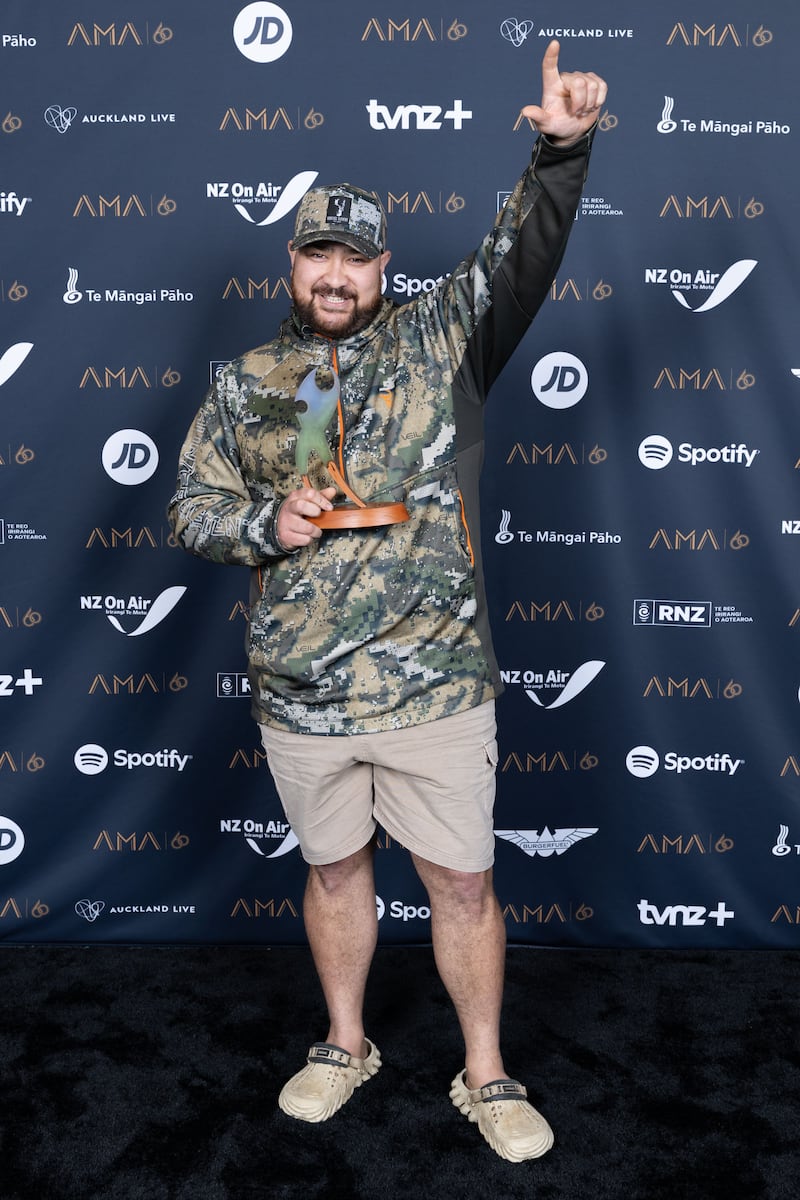“Seeing us be who we are in every sphere is the most beautiful thing — we’re just being Māori, we’re just being our natural selves with our natural gifts,” says Stan Walker, who walked away with two Tūī awards in Tāmaki Makaurau last night.
With over 20 award categories, Māori artists were named as finalists in nearly all of them — a sign of how far Māori music and storytelling have come.
Finalists in Te Māngai Pāho Mana Reo, celebrating te reo Māori songs, included winner Stan Walker (Māori Ki Te Ao), Anna Coddington (Te Whakamiha), Jordyn With a Why (Reia), Haami Tuari, TAWAZ and the Tuari Brothers.
For Best Māori Artist (Te Manu Taki Māori o te Tau), nominees featured Stan Walker, MOHI, TAWAZ, Corrella, Anna Coddington and Jordyn With a Why.
Ngāti Hine’s MOKOTRON won Te Manu Taki Tāhiko o te Tau | Best Electronic Artist, and noted this level of Māori representation hasn’t been seen since the late 1990s.
Ngāti Hine’s MOKOTRON was among the winners, taking out Te Manu Taki Tāhiko o te Tau | Best Electronic Artist. He says this level of representation hasn’t been seen since the late 1990s.
“We’re not just in the Māori categories — we’re across categories.”
“[There are] so many Māori now, I kind of have to step aside and go into other spaces.”

Atu i te puihi ki te atamira
Reggae artist Hori Shaw returned to the AMA stage in signature East Coast style — dressed head-to-toe in camouflage. After taking home the People’s Choice Award last year, Shaw was named Breakthrough Artist of the Year — a win he says caught him off guard.
“It’s cool seeing our people, aye. With everything going on in our country, it’s beautiful to see heaps of Māori doing it for the people.”
Shaw’s story resonates with many. After a hunting accident left him temporarily paralysed, it was music that offered him healing, becoming a constant presence in his recovery and journey to the top of Aotearoa’s music charts.
Te ao tōrangapū me te ao puoro
The evening wasn’t just about music. Members of the Green Party attended in support, acknowledging the powerful role music plays in reflecting and shaping national conversations.
“Music touches the hearts and minds of the people. It informs the conversations about the world that shapes us. We owe a debt to our musicians,” Kahurangi Carter says.
That message came alive on stage during Stan Walker’s moving performance of Māori ki te Ao, joined by tauira from Te Kura Kaupapa Māori o Hoani Waititi Marae. The performance featured a fierce haka and the waving of Toitū Te Tiriti flags.
Even global star Lorde spoke to the kaupapa during her acceptance speech.
“Watching from overseas this year as te reo Māori [is]defended in the way that it is, is so inspiring for me,” she adds.
“Are we gonna honor that Treaty or what?”
Te anamata o ngā puoro Māori
Many artists agree — the future of Māori music is bright, and it rests in the hands of the next generation.
Emerging voices like Naia Awatea, Mikayla Purcell-Mainini, and PAIGE were among those recognised as rising stars.
As Six60’s Matiu Walters puts it, “Māori music does something to you that I think is undeniable, it’s really the most interesting thing we have in music.”



